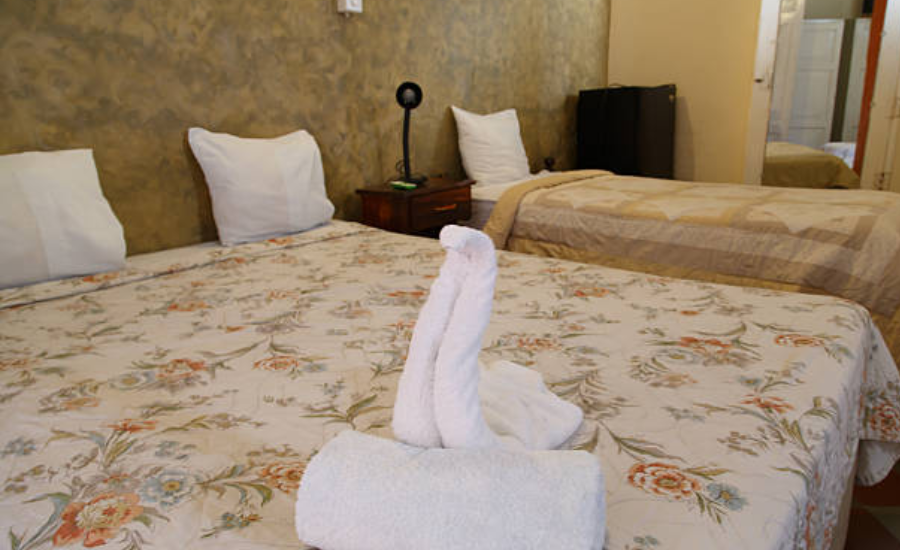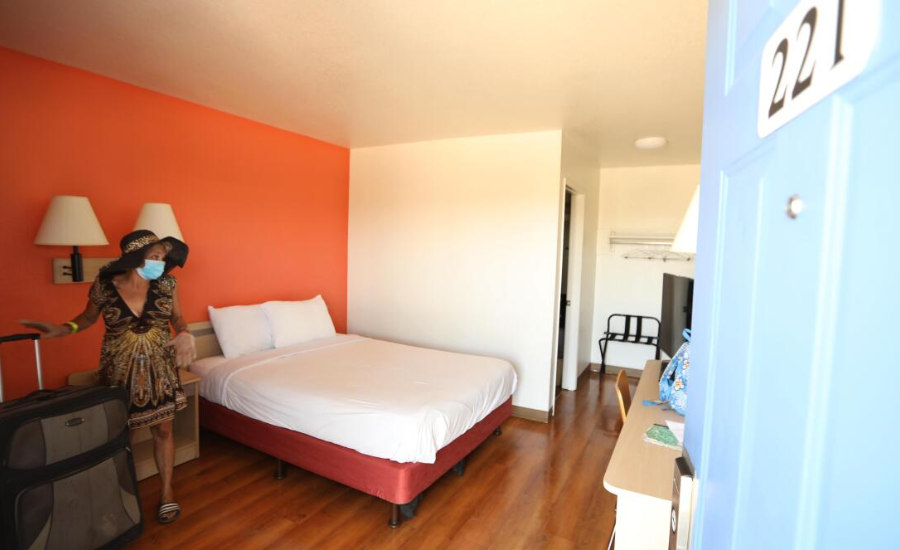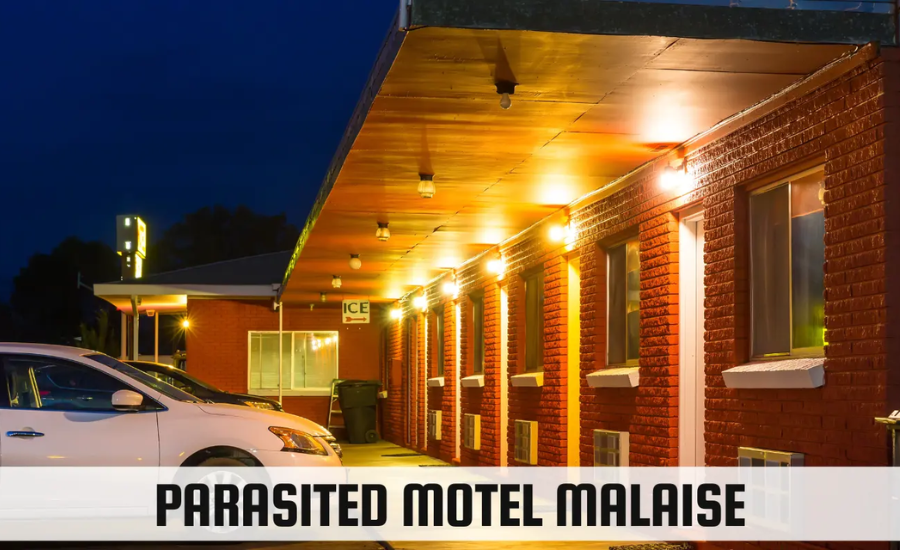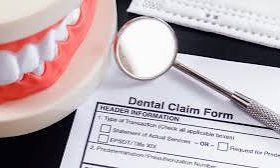Traveling typically evokes a sense of excitement and adventure. However, not every travel experience is as enjoyable as one might hope. For some travelers, staying in budget motels can become a distressing ordeal due to a troubling issue known as parasited motel malaise. This term describes the discomfort and distress caused by infestations such as bedbugs, mites, and other unwelcome pests found in some motels. In this article, we will explore the hidden infestations that can plague motels, their impact on guests, and offer advice on how to safeguard yourself from these unsettling encounters.
The issue of parasited motel malaise highlights a growing concern for travelers seeking affordable accommodation. These infestations can significantly affect the quality of a stay, leading to discomfort, health issues, and a ruined trip. It’s crucial for travelers to be aware of these potential problems and take proactive measures to avoid them. By understanding the signs of infestations and choosing accommodations wisely, you can better protect yourself from the unpleasant reality of parasited motel malaise and ensure a more enjoyable travel experience.
The Growing Issue of Parasited Motel Malaise
In recent times, there has been a noticeable increase in reports concerning infestations within motels, with bedbugs emerging as a particularly troublesome issue. These minute, blood-sucking pests have made a significant comeback, posing a challenge for motel operators and turning stays into distressing experiences for guests. The resurgence of bedbugs can be attributed to factors such as heightened travel frequency and the pests’ evolving resistance to common pesticides. Despite this, bedbugs are not the sole offenders. Dust mites, fleas, and lice also frequently invade motel rooms, further exacerbating the problem of parasited motel malaise.
Understanding and Addressing Infestations

The term parasited motel malaise encompasses the discomfort and health concerns associated with these infestations. While bedbugs are often the primary focus, other pests such as dust mites and fleas contribute to the broader issue. Travelers should be vigilant and informed about the potential risks of motel stays to avoid such unpleasant experiences. Being aware of the signs of infestations and taking preventive measures can help mitigate the risks associated with parasited motel malaise, ensuring a more pleasant and worry-free travel experience.
Exploring the Impact of Parasited Motel Malaise
While bedbugs often grab the spotlight as a significant pest issue, other parasites also contribute to the discomfort and health concerns associated with parasited motel malaise.Dust mites are minuscule, almost invisible organisms that flourish in bedding, carpets, and upholstered furniture. These mites, while not directly biting their hosts, can induce allergic reactions and exacerbate asthma, leading to sleepless nights and respiratory issues for sensitive individuals. In addition, fleas, which are frequently linked to pets, can infiltrate motel rooms if previous occupants brought animals. Flea bites can cause severe itching, redness, and potential infections if not managed properly. Lice, although less frequently encountered, can also spread through shared linens and towels, resulting in itching and irritation.
Mitigating the Risks of Infestations
The issue of parasited motel malaise underscores the need to recognize and manage a range of infestations beyond just bedbugs. Travelers should be aware that pests like dust mites, fleas, and lice can also pose significant health risks. Recognizing the signs of these pests and taking proactive measures can help mitigate the impact of such infestations. By being vigilant and informed, guests can better protect themselves from the various health issues associated with parasited motel malaise and ensure a more comfortable and safe stay.
Effects of Parasited Motel Malaise on Guests

Encountering parasites in a motel room can have significant effects on guests, both physically and psychologically. Physically, bites from pests such as bedbugs, fleas, or lice can lead to symptoms like itching, redness, and swelling. In more severe instances, individuals might experience allergic reactions or develop infections as a result of excessive scratching. These physical issues are compounded by the psychological impact of discovering an infestation. The stress, anxiety, and disrupted sleep experienced by guests facing parasited motel malaise can be considerable. The unsettling realization that their sleeping environment is shared with parasites can lead to a profound sense of discomfort and anxiety.
Understanding the Broader Impact of Infestations
The broader impact of parasited motel malaise extends beyond the immediate physical discomfort. Guests often face significant psychological stress upon realizing they are dealing with an infestation. This stress can manifest as anxiety and sleeplessness, exacerbating the overall discomfort of the experience. The presence of parasites in a motel room can create a lasting sense of unease, making it crucial for travelers to be aware of these potential issues and take necessary precautions to avoid such distressing situations. By understanding the full range of effects associated with parasited motel malaise, guests can better prepare themselves and mitigate the negative impact on their stay.
Identifying Signs of Parasited Motel Malaise
For travelers, recognizing signs of an infestation is essential to avoid the discomfort associated with parasited motel malaise. Bedbugs, known for their elusive nature, can be challenging to detect due to their ability to hide in minute crevices. Nonetheless, there are several indicators to watch for: rust-colored stains on sheets or mattresses may suggest bed bug droppings, while reddish-brown insects or their discarded skins might be visible in mattress seams, headboards, or furniture. Dust mites, though too small to see, can trigger allergic reactions like sneezing, coughing, and itchy eyes, especially during bed use. Fleas can leave dark specks of excrement on bedding or carpets, while lice are typically identified by tiny, white eggs (nits) attached to hair strands or noticeable itching of the scalp.
Effective Detection Strategies
Understanding how to identify the signs of parasited motel malaise can significantly impact your stay. Bedbugs may be hidden but leave evidence such as blood stains and discarded skins. Dust mites often cause allergic reactions, providing a clue to their presence. Fleas can be spotted by their excrement on surfaces, and lice are most easily detected through a thorough examination of hair. Being aware of these signs can help travelers address issues promptly, ensuring a more comfortable and safe lodging experience.
Strategies for Preventing Parasited Motel Malaise
Avoiding encounters with parasites during motel stays begins with thorough preparation and vigilant practices. Start by researching potential accommodations extensively. Check online reviews from previous guests to identify any mentions of infestations or cleanliness concerns. Pay particular attention to comments about pest issues, which can provide valuable insights into the motel’s overall condition and hygiene standards. This preliminary research helps in selecting a motel less likely to be affected by parasited motel malaise.
Upon arrival at your motel, conduct a meticulous inspection of your room. Focus on areas where parasites commonly hide, such as mattress seams, headboards, and upholstered furniture. Look for signs of bedbugs, such as small stains or the bugs themselves, as well as dust mite-related symptoms or flea dirt on carpets and bedding. Addressing these potential issues early can prevent an uncomfortable stay and reduce the risk of encountering parasited motel malaise.
Implement additional preventive measures to further safeguard against parasited motel malaise. Elevate your luggage by using racks or placing it on hard surfaces rather than on the floor or bed to minimize the risk of bringing bedbugs home. Store clothing and other personal items in sealed plastic bags within your suitcase to deter parasites from infesting your belongings. Using bed bug-proof encasements for pillows and mattresses can also create an additional barrier against infestations. Additionally, maintaining a clean and clutter-free environment during your stay by regularly vacuuming around the bed and furniture can help keep potential pests at bay.
Taking Action Against Parasited Motel Malaise
Upon discovering an infestation during your hotel stay, prompt action is crucial to address the issue effectively. Initially, report the issue to the motel’s management without delay. Request a different room if the infestation appears localized, or, if the issue seems widespread or severe, consider relocating to alternative accommodation. Acting quickly can help mitigate the impact of parasited motel malaise and ensure a more comfortable stay.
Next, thoroughly inspect your personal belongings for any signs of parasites. Thoroughly inspect your luggage and clothing for any signs of pests. If you discover any traces of an infestation, launder all contaminated items using hot water. Drying them on high heat can help eliminate any remaining pests. Ensuring that your belongings are cleaned properly is essential to prevent carrying parasites with you and to manage the spread of parasited motel malaise.
Finally, if you experience intense reactions to bites or other allergic symptoms, it is important to seek medical attention. A healthcare professional can provide appropriate treatment and guidance on managing symptoms effectively. This step is vital for addressing any health issues resulting from the parasited motel malaise and ensuring that you receive the necessary care to recover quickly.
Responsibilities of Motel Owners in Preventing Parasited Motel Malaise

Travelers can implement various measures to safeguard themselves from parasites, but motel owners also play a crucial role in preventing and managing infestations. Frequent property inspections are essential for detecting and resolving potential problems before they become more serious. Adopting comprehensive cleaning routines ensures that areas prone to infestations are thoroughly maintained. Additionally, a swift response to guest complaints about pests is essential for mitigating the effects of parasited motel malaise and maintaining guest satisfaction.
Get the Latest Scoop Here: Https-Tomu-Io-Gz6pbw
Enhanced Measures for Parasite Control
To further protect against parasited motel malaise, motel owners should consider investing in professional pest control services. These experts can provide targeted treatments to address infestations effectively and prevent future occurrences. Additionally, using protective encasements for mattresses and pillows can serve as an additional barrier against pests, reducing the likelihood of infestations. By implementing these proactive measures, motel owners can significantly reduce the risk of parasited motel malaise and ensure a cleaner, more comfortable environment for their guests.
FAQs
Q1. What is parasited motel malaise?
A. Parasited motel malaise refers to the discomfort and health issues caused by pest infestations in motels. This includes issues such as bedbugs, dust mites, fleas, and lice, which can significantly impact guests’ comfort and well-being.
Q2. What types of pests contribute to parasited motel malaise?
A. Common pests associated with parasited motel malaise include bedbugs, which are notorious for causing itching and discomfort; dust mites, which can trigger allergies and asthma; fleas, which can cause severe itching and potential infections; and lice, which can spread through shared linens and towels.
Q3. How can travelers identify signs of an infestation in a motel room?
A. Signs of an infestation include rust-colored stains on sheets (bedbug droppings), tiny reddish-brown bugs or their skins, dust mite-related allergic reactions, dark specks of flea excrement on bedding, and white eggs or itching from lice.
Q4. What steps can travelers take to prevent parasited motel malaise?
A. Travelers can minimize the risk of encountering parasited motel malaise by researching motels thoroughly, inspecting the room upon arrival, keeping luggage off the floor and bed, storing personal items in sealed plastic bags, using bed bug-proof encasements, and maintaining cleanliness during the stay.
Q5. What should I do if I discover an infestation during my stay?
A. Upon discovering an infestation, promptly inform the motel management and request a different room or consider alternative lodging if the situation is serious. Thoroughly inspect and clean your belongings by washing clothes in hot water and using high heat for drying. Seek medical attention immediately if you experience severe reactions.
Conclusion
In conclusion, parasited motel malaise underscores a significant concern for travelers seeking budget-friendly accommodations. Infestations of bedbugs, dust mites, fleas, and lice can severely impact both physical comfort and mental well-being. By recognizing the signs of these pests and taking proactive measures, travelers can minimize their risk of encountering such issues. Motel owners also play a crucial role in preventing and managing infestations through regular inspections and professional pest control services. Understanding and addressing parasited motel malaise is essential for ensuring a more comfortable and worry-free travel experience.
Stay connected for the latest news and timely alerts: Trend Revolve





Leave a Reply